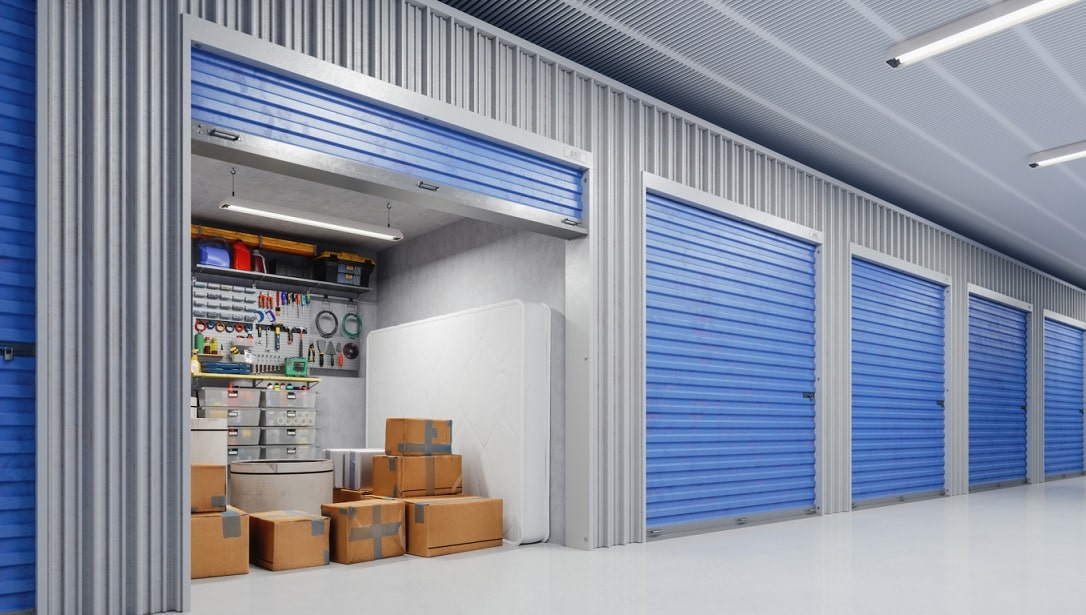Regardless of the size of your house, if you have lived there for several years you have accumulated a lot of stuff. Most people don’t realize how much they have until they need to move, that’s why downsizing is such a huge part of the moving process. However, it’s not always easy to let go of items you’ve had for a long time. Doubly so if you’re moving to a much smaller space or just don’t have the time to go through everything you own. You don’t want to accidentally throw out your late grandmother’s quilt!
While you can find your own storage units, many moving companies (like Great Movers) provide storage options for customers. The best part is that the movers will help bring your belongings to your storage unit and then to your new home once you’re ready, saving you a lot of time. There are many reasons a storage unit can be beneficial to the moving process so it might be worth it to consider it for the future.
Declutter Your House
Once you’ve decided to move out of your house, you will want to attract as many buyers as possible. For best results, you should declutter your house as much as possible as a tidy home will showcase the space in the best possible light. Even if your house is large, a cluttered garage, full closet, or large stack of boxes strewn about the house can turn off potential buyers.
While it might be easier to start packing up when you know your closing date, it’s not always possible. In many cases, even if you do know the closing date, your move-out and move-in dates might not overlap.
Whatever the case is, the idea is to get as much non-essential stuff out of your house and somewhere else. If you’re not able to move into your new place yet, you will have to put your boxes into storage for a few months. Luckily, most reputable movers offer safe and secure short-term storage solutions. Plus, they don’t necessarily need to have exact dates. When you’re ready to move your boxes into your new place, all you need to do is give them a call and let them know your plans. They’ll deliver the items to you with zero hassle.
Plus, putting your stuff in storage early on allows you to also take a second look at what you own. With so much going on from finding a new house, closing on the new house, finding a buyer, packing, and all the dozens of other tasks you’ll probably be overwhelmed. Chances are you might throw out something accidentally and/or bring too many items to your new place that you don’t need. You might even bring bulky items like furniture that won’t even fit in your new place!
With everything in storage, you can spend a bit more time sorting through your belongings. If you can, wait to declutter the storage unit until after you’ve moved in. There’s nothing quite like living in a new place to give you a clearer picture of where you want to put things and whether your old aesthetic matches your new house. Plus, you’ll have a clean, empty space when you move so you can easily paint the walls without worrying about dirtying up your stuff.
Reduce Moving Costs
It might sound counterintuitive, but renting a storage unit could save you moving costs. The smaller units can often cost as little as $100 and many places offer a discount on the first month. Many CT moving companies might even offer discounts on your move if you also use their storage solutions. Of course, you shouldn’t assume that you’ll get these discounts so make sure that you ask about any promotions when you talk to the movers over the phone.
Even if you don’t get a discount, moving might still be cheaper if you put some things in storage. With less stuff to load and unload, the movers will take less time, which means a lower price tag. Of course, it also means you will need to move your own boxes into and out of storage yourself for maximum cost savings.
Alleviate Stress
While you can reduce stress by planning ahead, sometimes you’ll still run into some hiccups. Maybe your new house isn’t ready in time or maybe the people who want to purchase your home need to move in faster than expected. There are so many things that can happen that it can be overwhelming. The last thing you need is not having a safe place to store your belongings.
Even if everything goes according to plan, it can still be tricky to try and pack and move everything in a short amount of time. Thai is especially true if you’re making a long-distance move. That’s why renting a storage unit can be a great option. You can start packing even before you put your house on the market and store your stuff as early as possible. Plus, you can keep adding to the unit as the selling and buying process gets underway.
Find the Right Buyer for Items
Yard sales might be great for selling the basic knick knacks you don’t want to bring with you, but they might not be the best for more valuable items. Of course, anything could be considered ‘valuable’ so it really comes down to your knowledge of what you own and how well you know the pricing. Things that can sell for a lot include:
- Collectible toys
- Comic books
- Trading cards
- Camera lenses
- Vintage clothes
- Designer purses and shoes
- Scientific equipment
Of course, to make money on things like collectibles, they need to be in almost pristine condition. For toys, most are only worth money if they are still in the box so make sure to do some research and price accordingly. There are a lot of places online where you can list your items for sale, but the most popular remains eBay. Depending on the quality and rarity of the item you’re selling, you might even be able to sell it at a profit. In order to do this, you can’t have a deadline where you need to get rid of your items. That’s why a storage unit is so useful. You can simply pack them away and spend some time doing your research and finding the right buyer.
Consider Storage Solutions for Your Next Move
Moving is both an exciting and stressful endeavor, but you can lighten the burden by adding on either long or short term storage options. That way, you will have most of your things packed already weeks before your move. And if worse comes to worst and you have to move out before you can move into your new place, you will already have your belongings in storage. It’s a win win.
If you are interested in storage solutions, make sure to ask the professional movers what they offer.
FAQ
Will my stuff be safe in storage?
It depends on who you use, but with Great Movers we offer 24/7 surveillance and secure indoor storage facilities.
How long can I store my belongings?
Most moving companies allow you to store your boxes for up to a year, though you can always ask for an extension if that isn’t enough time.
What happens if something gets damaged while in storage?
If your items are damaged while in storage, make sure to let the movers know the second you notice. Your items are automatically insured under the released value protection for $0.60 per pound per item. If you plan on storing valuable items, you should take out moving insurance so you can be reimbursed for the total cost of the damage.



